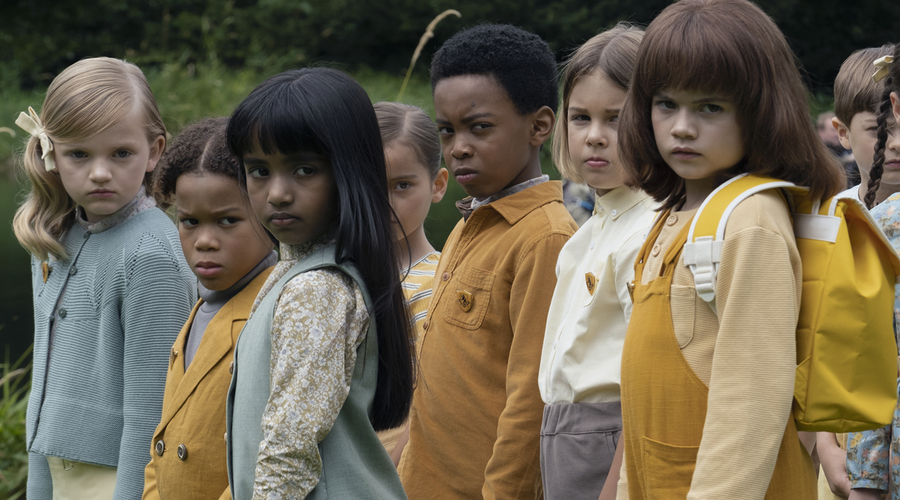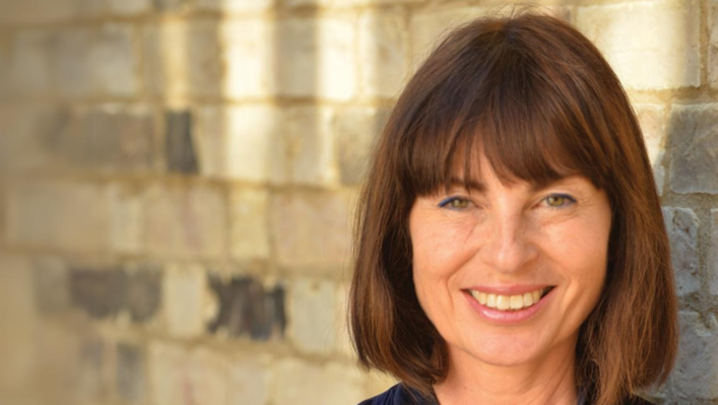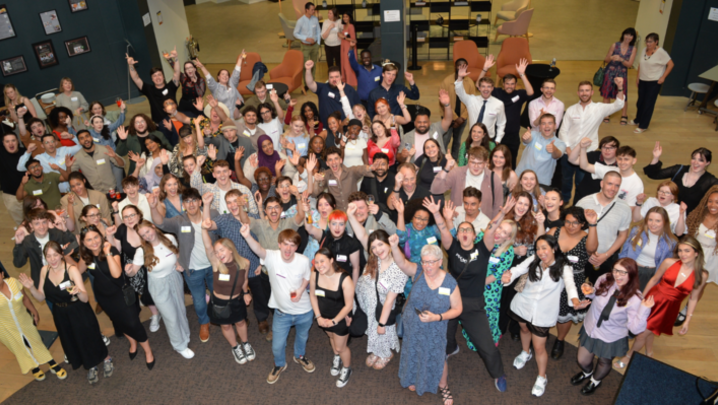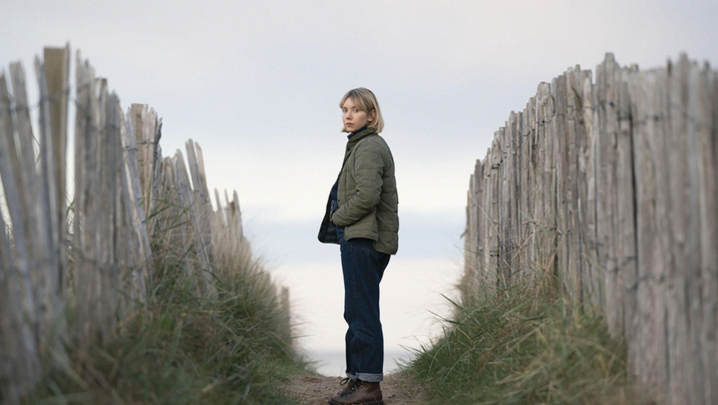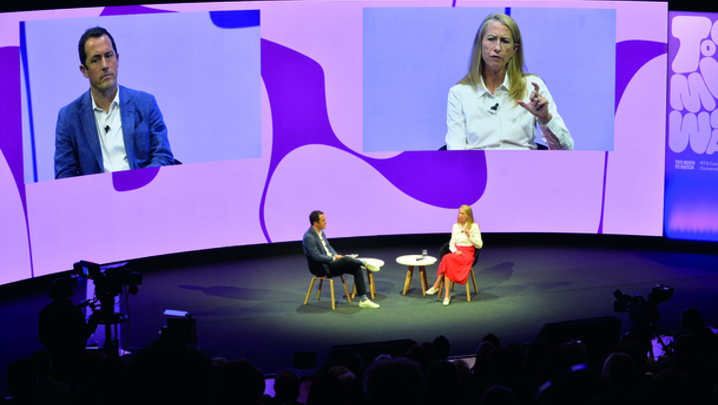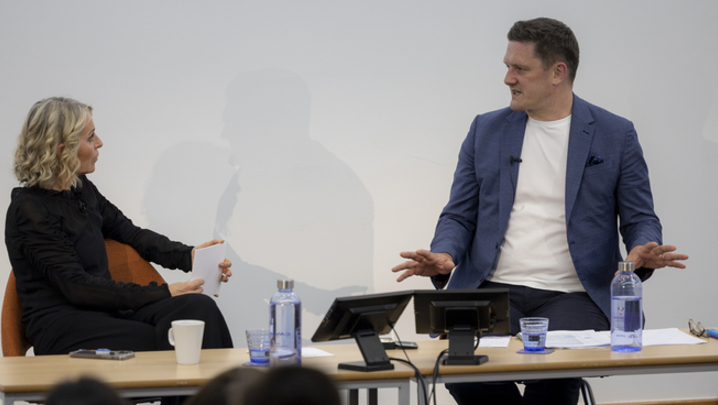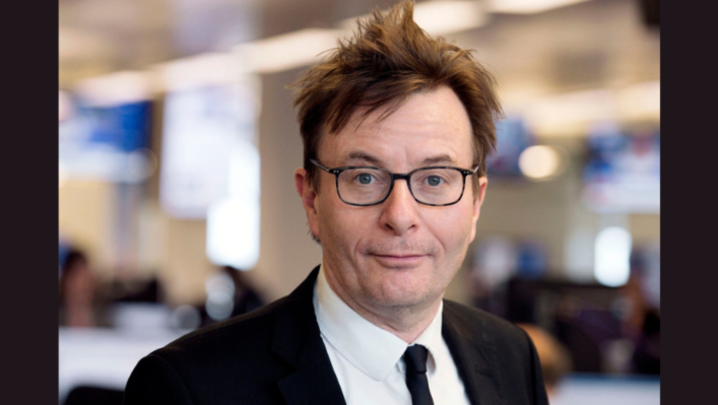Sky has recast sci-fi classic The Midwich Cuckoos from a female perspective, reports Shilpa Ganatra
A wide-eyed couple moving out of London. A single mother reentering dating life. A prep school teacher working late. An illicit affair. Welcome to Midwich, a seemingly normal suburban town – until the day something strange happens and many of its residents are temporarily left unconscious. After they wake, the women of child-bearing age discover they’re pregnant. When the children are born, they’re not quite human.
Depicting relatable characters and eerie children alongside thought-provoking questions, John Wyndham’s 1957 sci-fi novel is a story for the ages, and it’s been given a 2022 update courtesy of Sky Max and an all-star cast that includes Keeley Hawes, Max Beesley, Aisling Loftus, Ukweli Roach and Synnove Karlsen.
“The novel is a classic, and yet has never been adapted for TV, so there was an opportunity to tell a story that still has unnerving contemporary resonance,” says Manpreet Dosanjh, commissioning editor at Sky Studios. “It has all the ingredients of the classic genre piece Sky is known for – thrilling, cinematic, action-packed, but set within a very recognisable British community. That was a proposition that felt uniquely Sky.”
Until now, the story has been most famously portrayed as Village of the Damned, the 1960 cult movie later reworked by Halloween director John Carpenter. Both gave Wyndham’s story a higher profile, but this also made obtaining the rights to retell the story trickier. Robert Cheek, Route 24 executive producer, who co-produced the series explains: “We have an overall deal with the estate of John Wyndham but its rights were very complex because there’s John Wyndham’s estate, the estate of his wife, and then there are the remake rights from the original film which went through Warner Bros. It was a big mess of complexity.”
With Snowed-In Productions brought in as co-producers to disentangle the issue, the project was free to begin at the start of 2019.
The subsequent pandemic that affected its filming schedule provided an added sense of relevance to Wyndham’s sci-fi. “In a lot of John Wyndham stories, one thing changes in the ordinary world, but this has such implications that the way we all live is suddenly exposed,” says Cheek. “Walking through central London when there was nobody there, as I did during lockdown, is an image straight from The Day of the Triffids [another of Wyndham’s novels]. It was like the world caught up with us in a way that was not good.”
Much of the series’ other resonance was intentional. Cheek brought in long-time acquaintance David Farr (who adapted John le Carré’s The Night Manager for BBC One and Philip K Dick’s Electric Dreams for Channel 4) to write the screenplay. Farr reworked the story into a contemporary eight-parter that takes prime position in Sky’s summer slate.
Wyndham’s original story was written under the weight of the cold war, but, for today’s audience, Farr teased out a newer crisis – humankind’s future on Planet Earth. “I think young people, particularly, feel that humanity is deeply flawed,” he says. “We’re questioning, are we coming to an end? Is there a better form? Is there a more efficient species? I think The Midwich Cuckoos speaks beautifully to that in a way that asks questions about our own responsibilities.
“The wonderful thing about metaphorical stories or allegories is that they’re fluid and can shift and change for different times and different places.”
Farr changed specific elements, too. Midwich itself has morphed from a small village to a well-to-do commuter town on London’s outskirts. And the Children are no longer represented as having no genetic resemblance to their mothers; in the novel, the Children all have unusual golden eyes, light, blonde hair and pale, silvery skin.
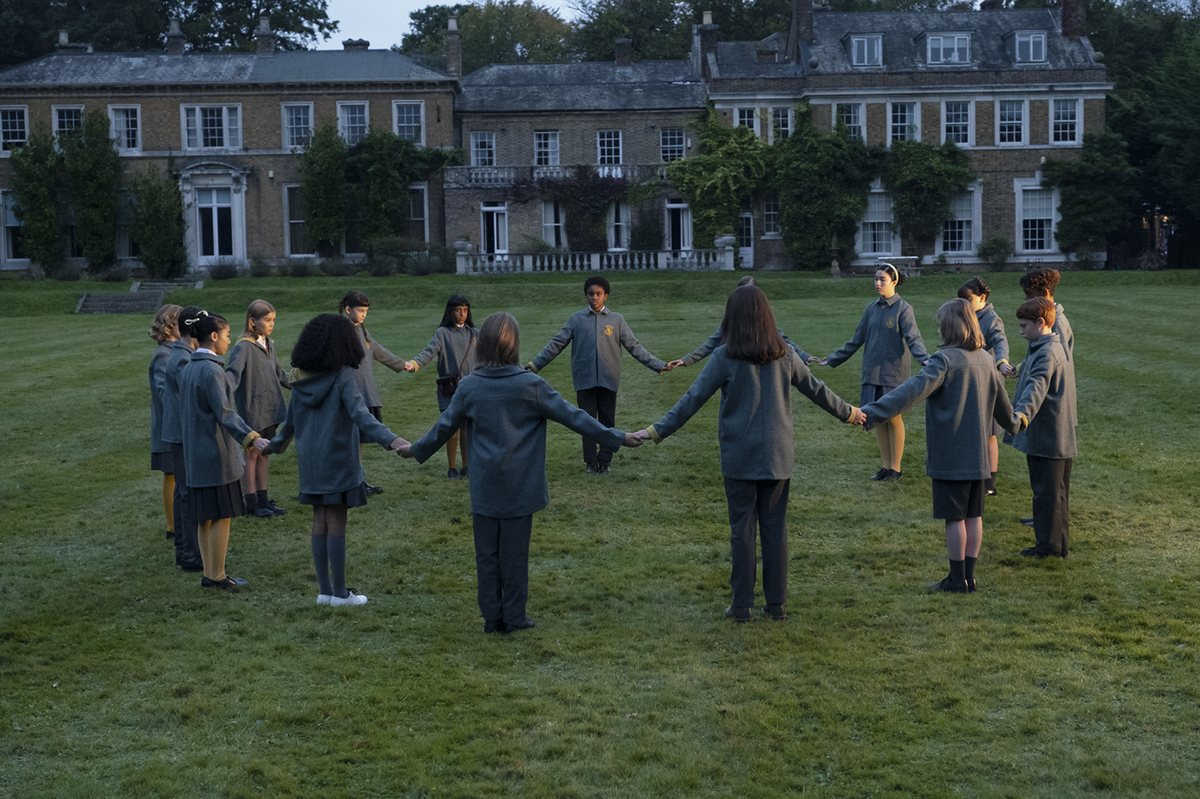
“I’m aware this change will be the most controversial among the sci-fi nuts,” Farr says. “But they have to be able to smuggle themselves into our world. The original story relies upon an era where it was easy for the Children to be kept secret from the world at large. Our world is about superexposure. There are still lots of secrets, but somehow they’re not kept in obvious darkness.” Plus, in mimicking their mothers, “they’re more like cuckoos than the originals”.
“The book is beautiful in itself, it’s a classic,” he continues. “But it’s about making it resonate for us now and not feel in any sense like a museum piece. I did that a little bit with The Night Manager, which was only 20 years old, but with anything that has a dated element to it, you have to make it work in your world.”
The series’s striking tone – its moody feel, confident pace and stylish visuals – was initially laid out by director Alice Troughton (Doctor Who, Baghdad Central) in a mood board. Leafing through it, with eerie images of too-perfect white picket fences and people dramatically passed out, it’s certainly transferred to screen. Within the team effort, she cites the contributions of cinematographer David Katznelson (The Rescue, It’s a Sin) and RTS-award-winning composer Hannah Peel, nominated for last year’s Mercury Prize.
Farr’s sparse script left room for cinematic elements, which helped, too. “Hitchcock is probably my ultimate film-maker and, for him, it’s less about dialogue and more about what’s happening in the space,” he says. “I try to write something that encourages directors like Alice to explore that.”
The writer also wanted it to be told from a female perspective to rebalance the story for a modern-day audience; essentially, the story revolves around motherhood. As part of this, he switched the central character of Zellaby, a therapist played by Keeley Hawes, from a man to a woman – “a listener not a lecturer”.
For Troughton, as both a Wyndham fan and a female director, directing this much-loved sci-fi story was “like getting the keys to the kingdom”. She says: “I’ve done English home-grown sci-fi, such as Doctor Who, Torchwood and The Sarah Jane Adventures, and also the westerns Tin Star and Baghdad Central. In the earlier days of my career, I felt like I was banging at the doors. There’s a certain auteurship behind certain genres, but I like smashing down genres that we haven’t been allowed into.”
Of her direction of the series, she says: “Female gaze is now a misused phrase, because it’s anything other than the established male, white gaze. It should be inclusive of the people who haven’t had the chance to be the subject, rather than the object, of the director’s lens.
“That was something they very much wanted to take on board with this because the book never goes into detail about the experience of the women who are pregnant.”
At the very least, it broadens the themes explored in this provocative story. That, says Farr, is exactly what television is for. “I see television as there to respond to the world we live in,” he says. “That’s when it’s at its best, because we’re all watching it and we’re all talking to each other about it. It feels to me that this is what society should be about: raising and debating issues and asking questions. Stories are one very wonderful way to do that.”
The Midwich Cuckoos debuted on Sky Max on 2 June.

